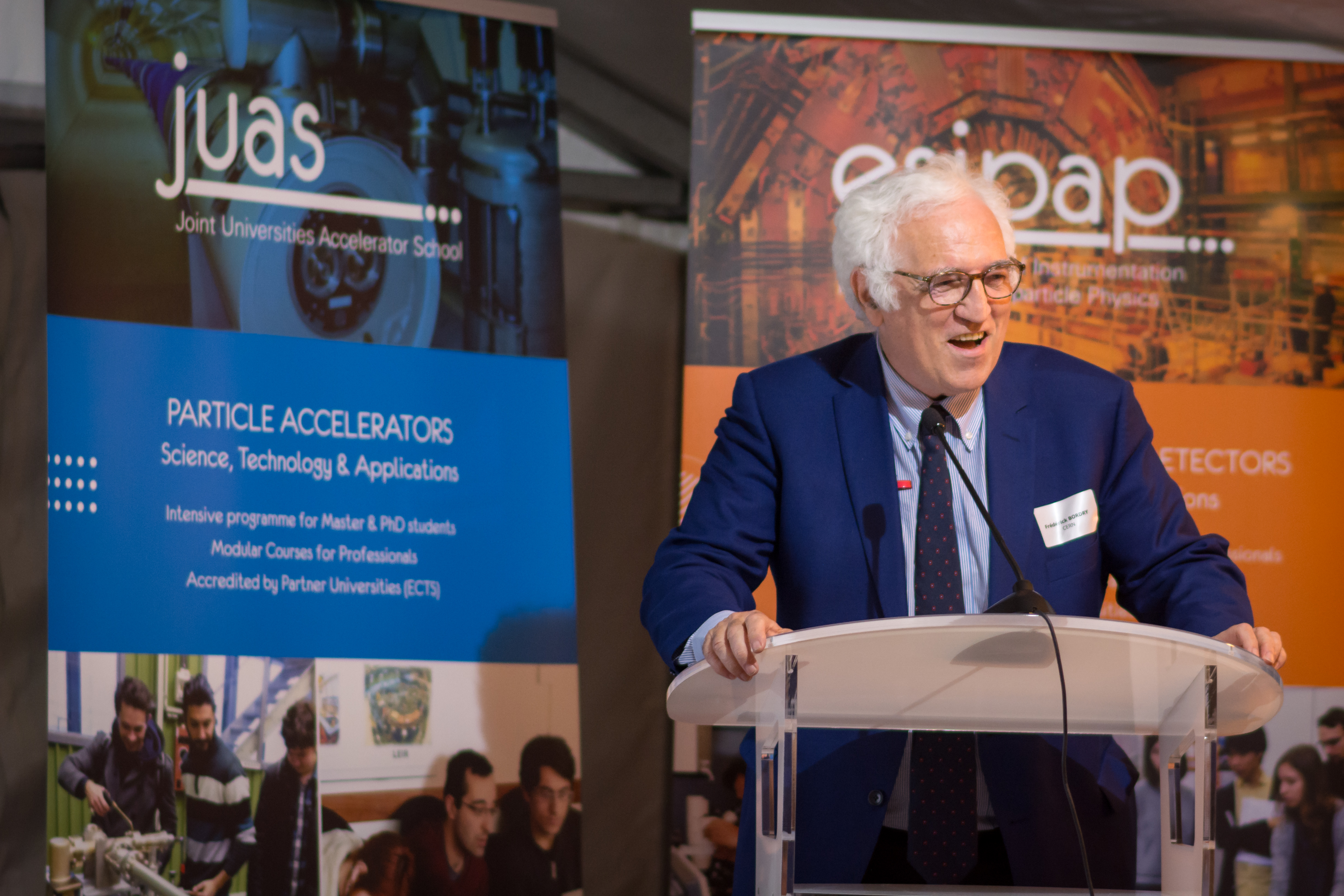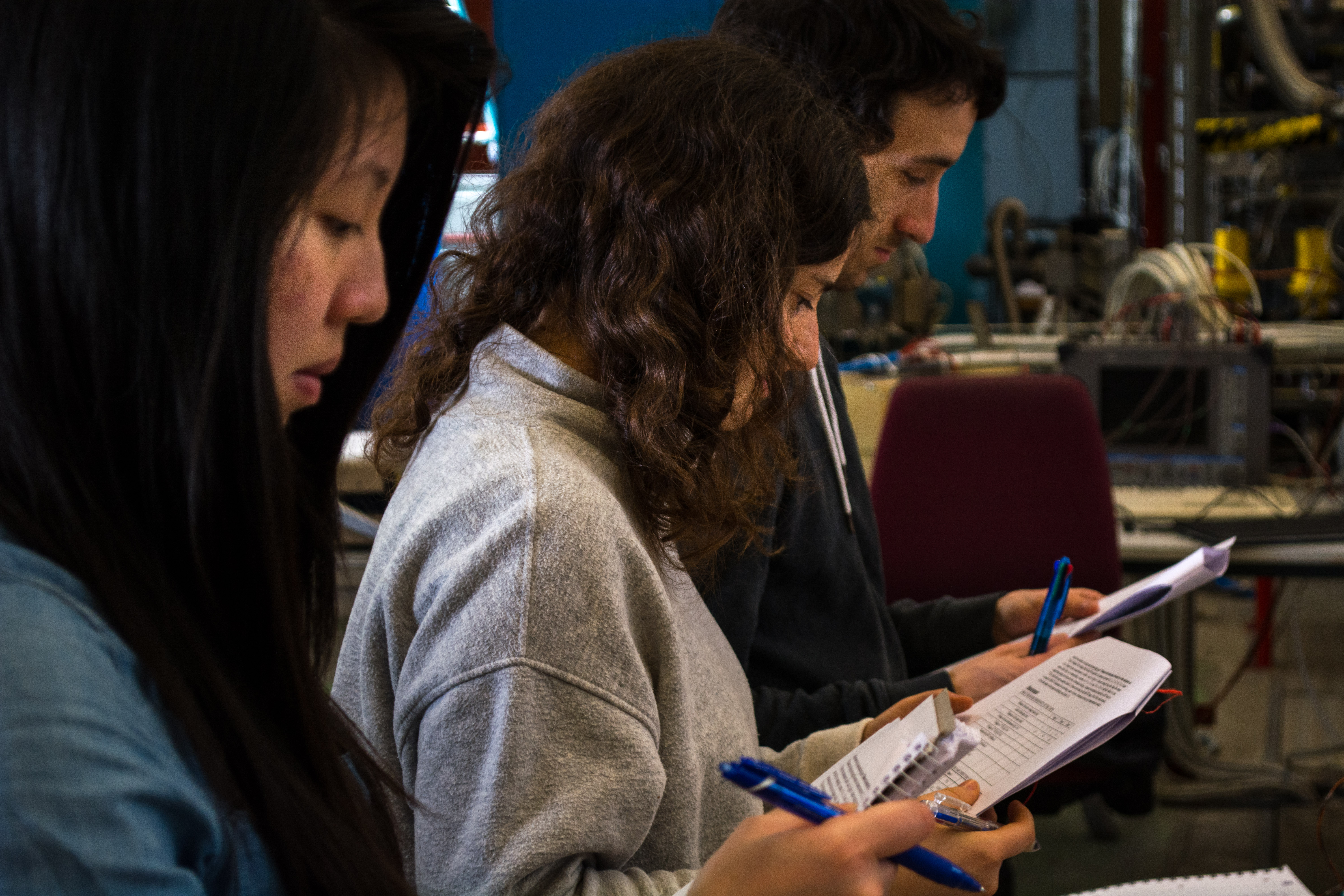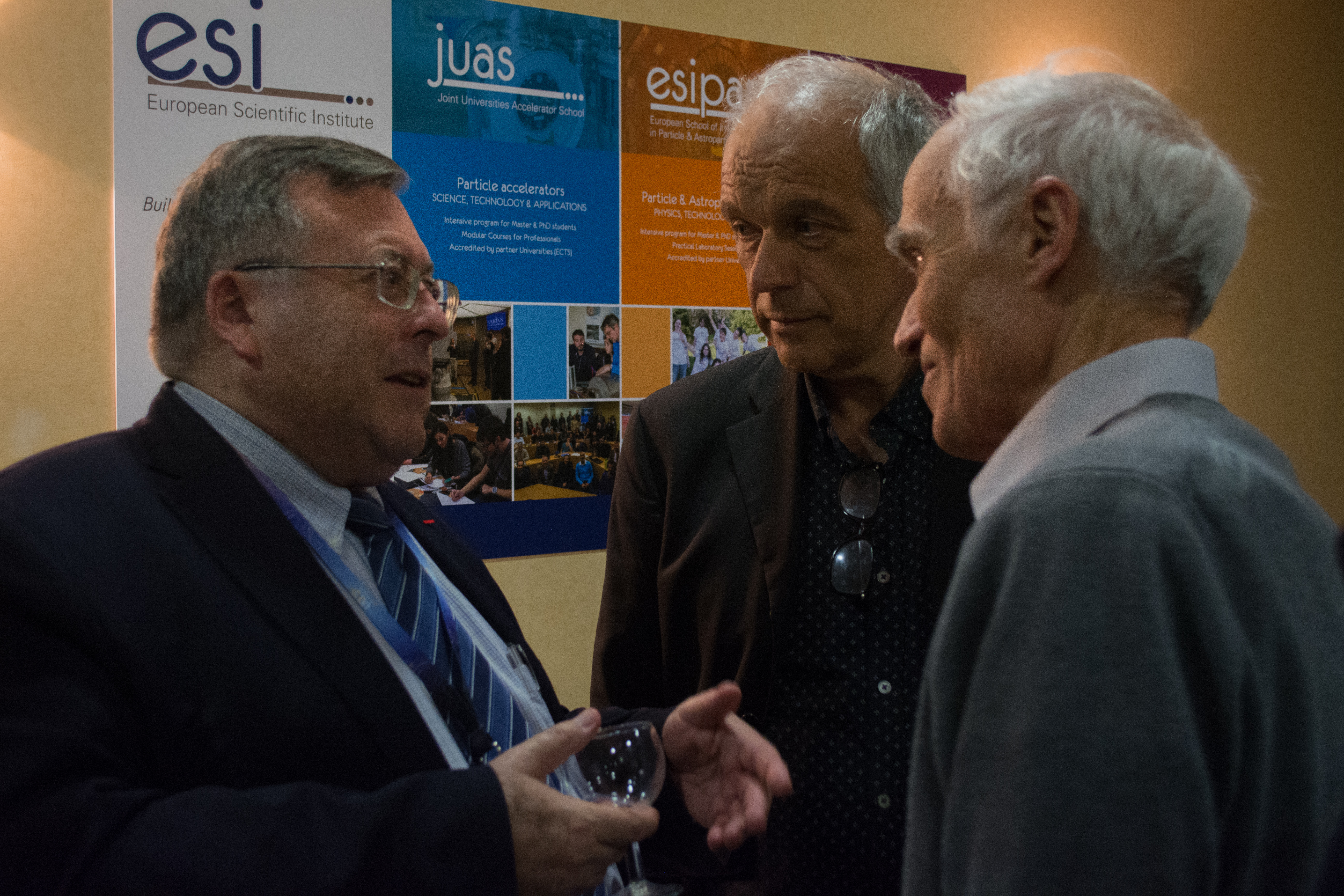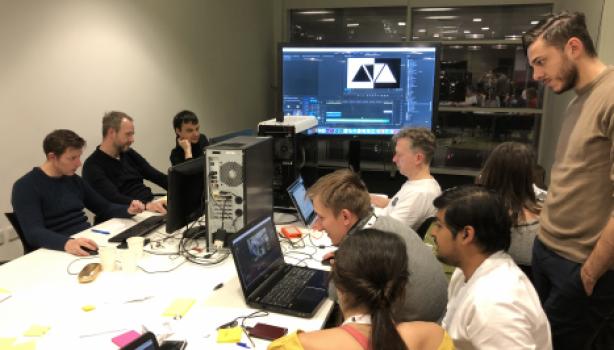Invented at the turn of the 20th century, at the same time as modern physics was reinventing the concept of the particle, particle accelerators developed as the workhorses of nuclear and particle physics to become the largest scientific instruments ever built by man. Today, they also constitute essential tools for the study of condensed matter and biomolecules, and find numerous societal applications in medical diagnostics and treatment, the polymer and electronic component industries, public security and food and health product safety.
The science and the technology of accelerators are specific domains of physics and engineering in their own right. They must be taught as such, along with their latest developments, to the future designers, builders and operators of these strange machines.
This is precisely what the Joint Universities Accelerator School (JUAS) has been doing each year since 1994 at ESI-Archamps. Two specialised 5-week courses are proposed to Master and Doctoral students, as well as young professionals from industry or research centres. The courses are delivered by a faculty comprising some 50 experts from academia, research facilities and industries active in the field. The curriculum is overseen by the Advisory Board in which JUAS’ 16 partner universities are represented. Both courses are concluded by exams enabling partner universities to attribute ECTS and/or doctoral credits to their participating students.
In all, more than 1000 students have been trained at JUAS since its creation.
 Frédérick Bordry, CERN Director of Accelerators and Technology celebrating the 25th edition of JUAS at ESI in February (Image: ESI-Archamps)
Frédérick Bordry, CERN Director of Accelerators and Technology celebrating the 25th edition of JUAS at ESI in February (Image: ESI-Archamps)
JUAS employs an innovative pedagogical approach, with a unique mix of lectures, tutorials, seminars, group workshops, laboratory visits and practical sessions. The latter include for some students the opportunity to take part in machine development sessions on real accelerators in operation – this year on the synchrotrons of ESRF in Grenoble and on the linear accelerator CLEAR at CERN. Students also spend two days at the Paul Scherrer Institut near Zürich and a full day at Bergoz Instrumentation. In the words of Jacinta Yap, a PhD student at the University of Liverpool who attended JUAS 2017, “JUAS has been a really great opportunity to learn all about accelerators in a condensed amount of time. I think the biggest take-away for me is that I’m at the beginning of my PhD and so it’s really great to learn about these fundamentals so early on.”
 Practical sessions at CERN (Image: ESI-Archamps)
Practical sessions at CERN (Image: ESI-Archamps)
Also to be mentioned is the involvement of JUAS in the production of a MOOC on accelerators, in the framework of the “Training, Communication and Outreach” work package of the H2020 project ARIES.
JUAS is synonymous with diversity: a stimulating mix of physicists and engineers, students and more experienced scientists coming from some 20 countries in Europe, Asia and America. It is worth noting that one third of the 2018 students in Course 1 are female. Such diversity creates exciting opportunities for international and intercultural exchange, and prepares the students for flexible career paths in an increasingly globalised world.
The success of JUAS is in great part due to its intrinsic voluntary nature. This is apparent in the way academic institutions, laboratories and industrial companies allow their staff to teach at JUAS, grant access to their premises and equipment and provide financial support. Likewise the personal commitment of all those involved in running the School. It is only through this voluntary action that we can maintain high standards of teaching while keeping fees to a minimum. In this respect, the true value of JUAS greatly exceeds its financial budget. Our heartfelt thanks to all our partners.
 Philippe Lebrun, JUAS Director celebrating the 25th edition of the school with Hermann Schmickler, Director of the CERN Accelerator School and Louis Rinolfi, former JUAS Director (Image: ESI-Archamp)
Philippe Lebrun, JUAS Director celebrating the 25th edition of the school with Hermann Schmickler, Director of the CERN Accelerator School and Louis Rinolfi, former JUAS Director (Image: ESI-Archamp)
Long live JUAS … for at least the next 25 years!
Header image: Students and faculty from JUAS 2018’s second module on the technology and applications of particle accelerators at ESI-Archamps (France) (Image: ESI-Archamps)


